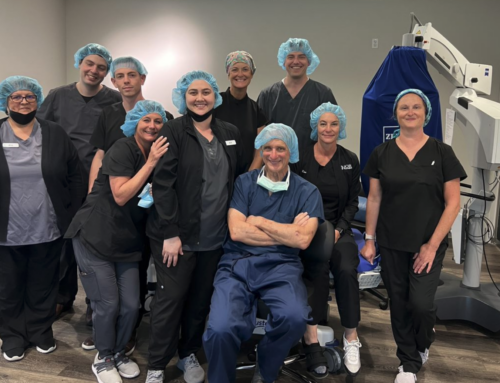
One recent study included data on nearly 6,400 patients seen at the researchers’ eye clinic during a 1-year period. About 40 percent of patients reported no problems with blurred vision, headaches, or other eye-related symptoms. In this group of asymptomatic patients, Dr. Irving and colleagues determined rates of significant changes since the previous assessment. Significant changes included a change in vision prescription (glasses or contact lenses), diagnosis of a new eye condition, or a new change in patient management.
Overall, 58 percent of asymptomatic patients had at least one significant change on routine eye examination. These included vision prescription changes in 41 percent, new diagnoses in 16 percent, and management changes in 31 percent. (Some patients had more than one type of change.)
Older patients were more likely to have significant changes. The rate of changes resulting from routine eye exams ranged from eight percent for children under four years old to 78 percent for adults 65 and older.
Assessment intervals were longest for young and middle-aged adults; for both groups, median time between visits was about three years. Older age and longer assessment interval were both associated with a higher rate of significant changes, independent of each other.
Routine eye examinations are generally believed to play an important role in preventing vision loss by screening for asymptomatic eye diseases. However, the ideal frequency of exams for patients without any vision problems or eye-related symptoms is unknown. Current recommendations vary, reflecting expert opinion rather than hard evidence.
Dr. Irving and coauthors conclude, “Given an overall greater than 50 percent detection of significant change, routine eye examinations do appear to be productive in asymptomatic patients, and this appears to increase with age.”
Read this article on Science Daily.
“Often people fail to see the need for symptomless eye examinations, but our authors make the case that there are numerous sound reasons for routine and regular eye exams,” comments Anthony Adams, OD, PhD, Associate Editor of Optometry and Vision Science. “These include important systemic diseases such as diabetes and eye diseases like glaucoma and macular degeneration.”
 Our practice philosophy at Barth Vision & Optical is simple, though we like to think it reflects a profound sentiment. We are here to be of service, in the truest sense of the term. We offer State-of-the-art eye examinations, A unique collection of fashion eye wear, Cataract surgery & consultation, LASIK vision correction, Eye Care Telemedicine. Call Today for an Appointment (707) 955-1120.
Our practice philosophy at Barth Vision & Optical is simple, though we like to think it reflects a profound sentiment. We are here to be of service, in the truest sense of the term. We offer State-of-the-art eye examinations, A unique collection of fashion eye wear, Cataract surgery & consultation, LASIK vision correction, Eye Care Telemedicine. Call Today for an Appointment (707) 955-1120.


